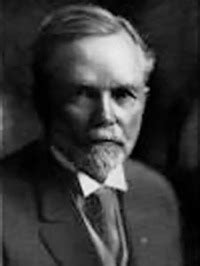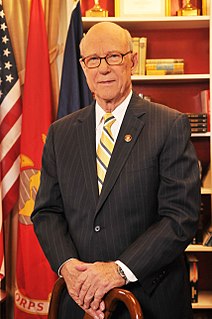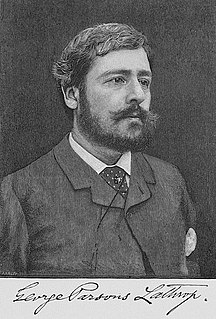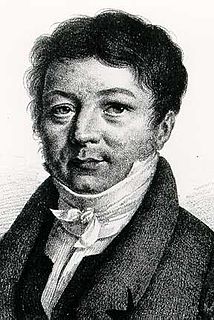A Quote by Ralph Waldo Emerson
Let us replace sentimentalism by realism and dare to uncover those simple and terrible laws which, be they seen or unseen, pervade and govern.
Related Quotes
Let the children learn to see in nature an expression of the love and the wisdom of God; let the thought of Him be linked with bird and flower and tree; let all things seen become to them the interpreters of the unseen, and all the events of life be a means of divine teaching. As they learn thus to study the lessons in all created things and in all life's experiences, show that the same laws which govern the things of nature and the events of life are to control us, that they are given for our good, and that only in obedience to them can we find true happiness and success.
Realism sets itself at work to consider characters and events which are apparently the most ordinary and uninteresting, in order to extract from these their full value and true meaning. It would apprehend in all particulars the connection between the familiar and the extraordinary, and the seen and unseen of human nature.
The laws of Nature, that is to say the laws of God, plainly made every human being a law unto himself, we must steadfastly refuse to obey those laws, and we must as steadfastly stand by the conventions which ignore them, since the statutes furnish us peace, fairly good government, and stability, and therefore are better for us than the laws of God, which would soon plunge us into confusion and disorder and anarchy if we should adopt them.
I know that certain minds would regard as audacious the idea of relating the laws which preside over the play of our organs to those laws which govern inanimate bodies; but, although novel, this truth is none the less incontestable. To hold that the phenomena of life are entirely distinct from the general phenomena of nature is to commit a grave error, it is to oppose the continued progress of science.
When I said during my presidential bid that I would only bring Christians and Jews into the government, I hit a firestorm. `What do you mean?' the media challenged me. `You're not going to bring atheists into the government? How dare you maintain that those who believe in the Judeo-Christian values are better qualified to govern America than Hindus and Muslims?' My simple answer is, `Yes, they are.'
Yet I'm sure there's something more to be read in a man. People dare not -- they dare not turn the page. The laws of mimicry -- I call them the laws of fear. People are afraid to find themselves alone, and don't find themselves at all. I hate this moral agoraphobia -- it's the worst kind of cowardice. You can't create something without being alone. But who's trying to create here? What seems different in yourself: that's the one rare thing you possess, the one thing which gives each of us his worth; and that's just what we try to suppress. We imitate. And we claim to love life.
One of the reasons people might be fallible, why we might fail to do what we try to do isignorance, that we have a limited understanding of the laws of the world - the physical laws that govern the world and of all the particulars of the world upon which those laws work. And then there's ineptitude, meaning that the knowledge is available, but individuals fail to apply it correctly. The third source is "necessary fallibility." That is, we're never going to be omniscient, there is some knowledge that we will simply never achieve, and there are limits to what we will be able to do.
I have seen the glories of art and architecture, and mountain and river; I have seen the sunset on the Jungfrau, and the full moon rise over Mont Blanc; but the fairest vision on which these eyes ever looked was the flag of my country in a foreign land. Beautiful as a flower to those who hate it, terrible as a meteor to those who hate it, it is the symbol of the power and glory, and the honor, of fifty million Americans.










































